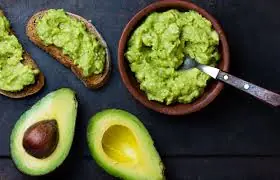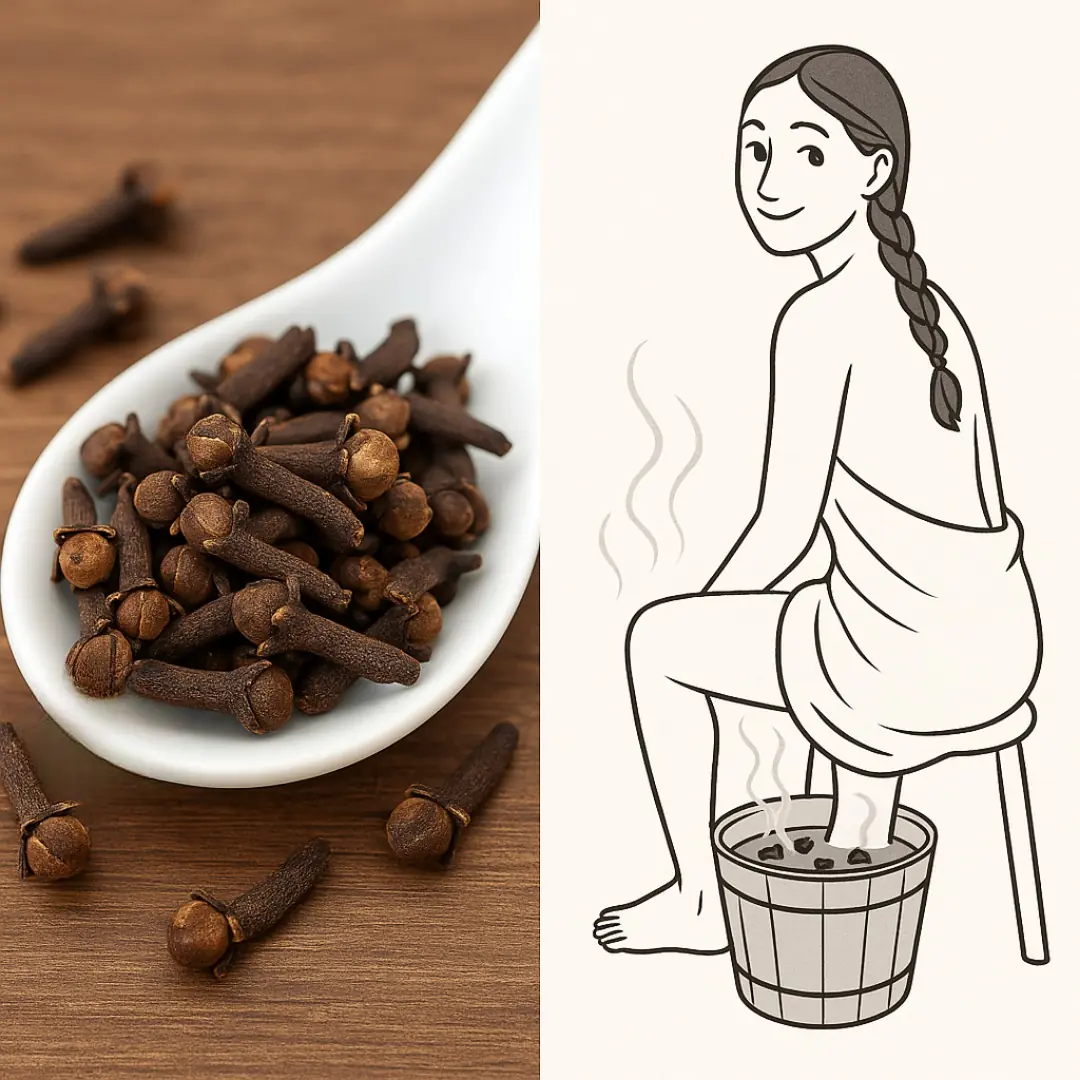
What to Eat to Boost Energy After 60: Key Foods for Vitality and Well-being.

As we grow older, it's completely natural to experience changes in our energy levels. Fatigue can become more frequent, and stamina may not be what it once was. However, one of the most powerful ways to counteract this decline is through a well-balanced, nutrient-rich diet. After the age of 60, the body requires specific nutrients that support metabolism, combat tiredness, and strengthen the immune system.
In this article, we’ll explore a selection of foods that can be easily added to your daily routine to help you stay energized in a healthy and natural way—without relying on caffeine or supplements.
Oats: Sustained Energy Throughout the Day
Oats are a powerhouse when it comes to providing long-lasting energy. Rich in complex carbohydrates and fiber, oats release glucose slowly into the bloodstream. This results in a steady source of energy that can last for hours, avoiding the highs and crashes that come from sugary or refined foods.
In addition, oats are a great source of vitamin B1 (thiamin), which plays a crucial role in converting food into usable energy. They also support healthy digestion and help manage cholesterol levels.
Tip: Enjoy a warm bowl of oatmeal for breakfast, topped with fresh fruit, a drizzle of honey, and a tablespoon of chia or flaxseeds for an extra fiber and omega-3 boost.
Antioxidant-Rich Fruits: Nature’s Energy Snacks
Fruits like apples, berries, oranges, and grapes are not only delicious but also full of essential nutrients. They provide natural sugars for quick energy, along with vitamin C and powerful antioxidants that protect the body from oxidative stress and help reduce fatigue.
These fruits also promote better skin health, immune defense, and mental clarity, which can decline with age.
Tip: Start your day with a fruit smoothie or enjoy a bowl of mixed fruit as a mid-morning snack to recharge your body.
Fatty Fish: Omega-3s for Brain and Body Vitality
Fatty fish like salmon, sardines, tuna, and mackerel are some of the best sources of omega-3 fatty acids, which are essential for brain health, reducing inflammation, and maintaining a strong heart. These healthy fats support cognitive performance, joint health, and overall energy levels.
Recommendation: Aim to include fatty fish in your diet at least twice per week. Try grilled salmon with vegetables or tuna salad with olive oil for a nutrient-packed meal.
Nuts and Seeds: Tiny Packages of Powerful Nutrition
Don’t underestimate these small foods—almonds, walnuts, sunflower seeds, pumpkin seeds, and chia seeds are loaded with healthy fats, protein, and important minerals like magnesium, which plays a key role in muscle function and energy production.
They’re also high in fiber, helping to maintain stable blood sugar levels and reduce afternoon crashes.
Practical Tip: Keep a small container of mixed nuts in your bag or car for a quick, energizing snack on the go.
Eggs: High-Quality Protein and Brain Support
Eggs are a nutritional powerhouse, providing all nine essential amino acids along with vitamin B12, which is vital for nerve function and the production of red blood cells. As we age, B12 absorption can decline, making it even more important to include in the diet.
Suggestion: A protein-rich breakfast of boiled eggs, poached eggs, or a vegetable omelet can help jumpstart your metabolism and keep you full and energized longer.
Water: The Most Overlooked Source of Energy
Fatigue is often a hidden sign of dehydration, which is especially common in older adults. Even mild dehydration can lead to low energy, brain fog, and headaches. Proper hydration keeps your body functioning efficiently, aids digestion, and helps transport nutrients to your cells.
Tip: Aim for at least 6–8 glasses of water a day. To make it more enjoyable, infuse your water with lemon slices, cucumber, or fresh mint.
Legumes: Plant-Based Powerhouses for Lasting Energy
Legumes like lentils, chickpeas, black beans, and kidney beans are rich in iron, fiber, and plant protein. Iron supports oxygen transport in the blood, helping prevent anemia—a major cause of fatigue in seniors.
Their high fiber content also helps regulate digestion and keeps you feeling satisfied for longer.
Lunch Idea: Try a hearty lentil stew or a chickpea salad with olive oil, herbs, and colorful vegetables for a delicious, energizing meal.
Dark Leafy Greens: Nutrient Density in Every Bite
Vegetables like spinach, kale, Swiss chard, and broccoli are packed with iron, magnesium, chlorophyll, and folate. These nutrients are vital for red blood cell production and cellular energy, helping the body better utilize oxygen and generate energy.
How to enjoy them: Add them to omelets, smoothies, soups, or stir-fry dishes. Lightly steaming or sautéing them makes them easier to digest.
Dark Chocolate: A Natural, Mood-Boosting Stimulant
In moderation, dark chocolate (containing at least 70% cocoa) offers a mild energy boost. It contains caffeine and theobromine, which can enhance alertness and improve mood. Additionally, it provides antioxidants and can be a healthier alternative to sugary snacks.
Caution: Limit your intake to a small square or two a day and avoid chocolates with added sugars or artificial ingredients.
Plain Yogurt: Gut Health Equals Energy
A well-functioning digestive system is key to good energy levels. Plain, unsweetened yogurt provides protein, calcium, and probiotics, which promote gut health and improve nutrient absorption.
When your gut microbiome is balanced, your body is better able to extract energy from the foods you eat.
Healthy Option: Enjoy a bowl of plain yogurt topped with fresh berries, oats, and a sprinkle of seeds for a filling, energizing snack or light breakfast.
Final Thoughts: Food as Fuel for a Fulfilling Life After 60
As we age, our bodies change, but our need for energy and vitality remains. While rest and physical activity are important, what you eat daily plays a central role in how vibrant and capable you feel. By including a variety of nutrient-rich, whole foods in your diet—along with staying hydrated and moving regularly—you can maintain your energy, mental sharpness, and overall well-being.
Remember: Always consult with your healthcare provider before making significant changes to your diet, especially if you have existing health conditions or take medications.
Nourish your body, energize your life, and embrace every day with strength and joy!
News in the same category


After Surviving 800 Snake Bites, This Man’s Blood Could Be the Universal Antivenom the World’s Been Waiting For

10 Warning Signs It’s Time to Cut Back on Caffeine

“Cases Are Exploding”: Living Near a Golf Course May Raise Your Risk of Parkinson’s, Study Warns

You’ll never see mosquitoes again if you do this

8 Foods That Help Eliminate Cancer Cells

How to Tell If You Have Intestinal Parasites and What to Do About That

Scientifically Proven Health Benefits of Avocado and Avocado Seeds

An Eye Specialist Explains What To Do If You Begin To See “Floaters”

10 W@rning Signs It’s Time to Cut Back on Caffeine

5 Early Signs of Colon Cancer You Shouldn’t Ignore

Scientists Discover Body’s ‘Kill Switch’ Capable of Destroying Cancer Cells

Native American High Schooler Discovers Cancer-Fighting Properties in Traditional Chokeberry Pudding

Be Careful If You’re Farting More Than 25 Times a Day—It Might Be a Sign Your Body is Trying to Warn You
Passing gas up to 25 times a day can be considered normal - but when you notice a sudden increase, especially if it's paired with discomfort or other symptoms, it's time to tune in.

The Healing Benefits of Cloves: Natural Remedies for Improved Wellness

13 Warning Signs of High Blood Sugar and 9 Ways to Take Control of Your Health

If You Have These Tiny Red Dots On Your Arm, Do Not Ignore The Warning Signs

The Truth About “Old Person Smell”: What Causes It And How To Get Rid Of It

Scientifically Proven Health Benefits of Lemons (Including Lemon Water)
News Post

Consciousness Is Not Confined to the Brain, But Is Connected To The Whole Universe, Scientists Say

After Surviving 800 Snake Bites, This Man’s Blood Could Be the Universal Antivenom the World’s Been Waiting For

10 Warning Signs It’s Time to Cut Back on Caffeine

“Cases Are Exploding”: Living Near a Golf Course May Raise Your Risk of Parkinson’s, Study Warns

11 Heartbreaking Signs Your Dog Is Nearing the End—And How To Give Them The Love They Deserve

Why McDonald’s Removed The Clown From The Company Image

You’ll never see mosquitoes again if you do this

9 Chilling Stories of Third Man Syndrome: When an Unseen Presence Aided Survival in Disasters

Experts Are Drawing Attention To A Disturbing Noise That People Produce Just Before They Die

A Young Woman Was Found Dead During A Long-Distance Bus Journey—With 26 iPhones Glued To Her Body

8 Foods That Help Eliminate Cancer Cells

Hacker with 30 years experience reveals the one thing we need to be worried about in the future

Man who spent 10,000 Bitcoin on two pizzas in 2010 could've been eye-wateringly well off today

How to Tell If You Have Intestinal Parasites and What to Do About That

Scientifically Proven Health Benefits of Avocado and Avocado Seeds

An Eye Specialist Explains What To Do If You Begin To See “Floaters”

A Double Cheeseburger and 75 Years of Love.
It was just a regular evening at Wendy’s. I had stopped in for a quick bite—nothing fancy, just a double cheeseburger, fries, and a moment of peace before heading home.

My Own Daughter Stole My Retirement Savings to Buy a House for Herself
